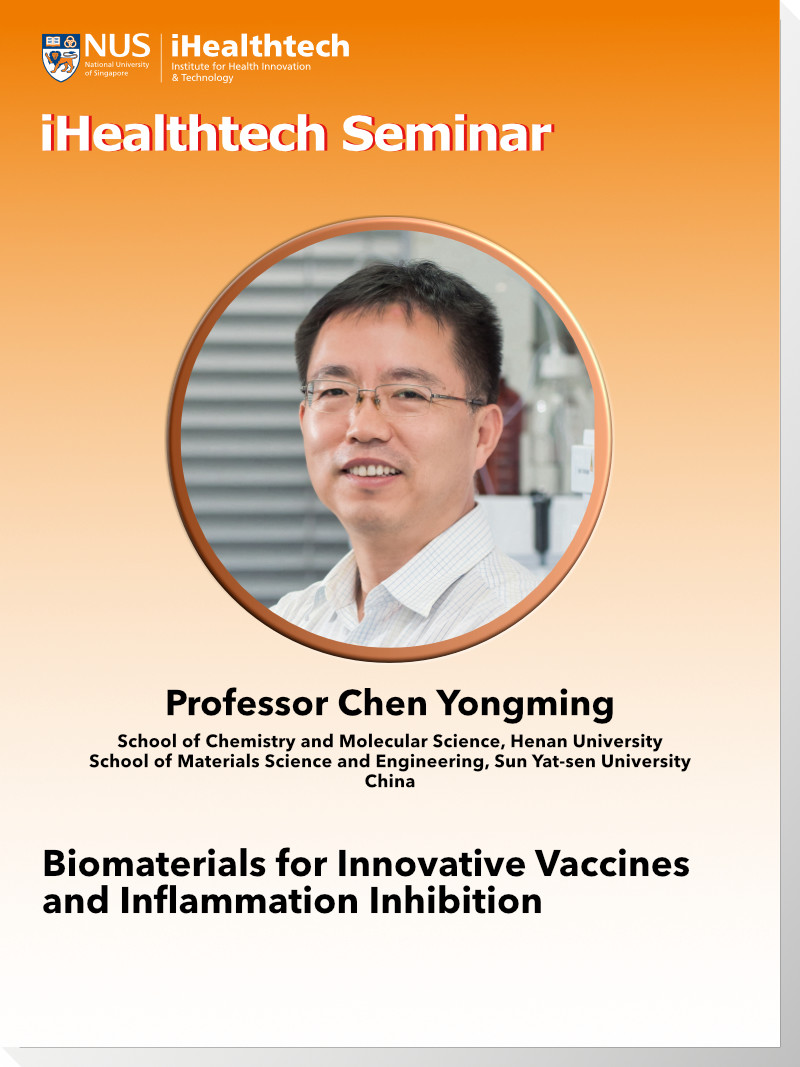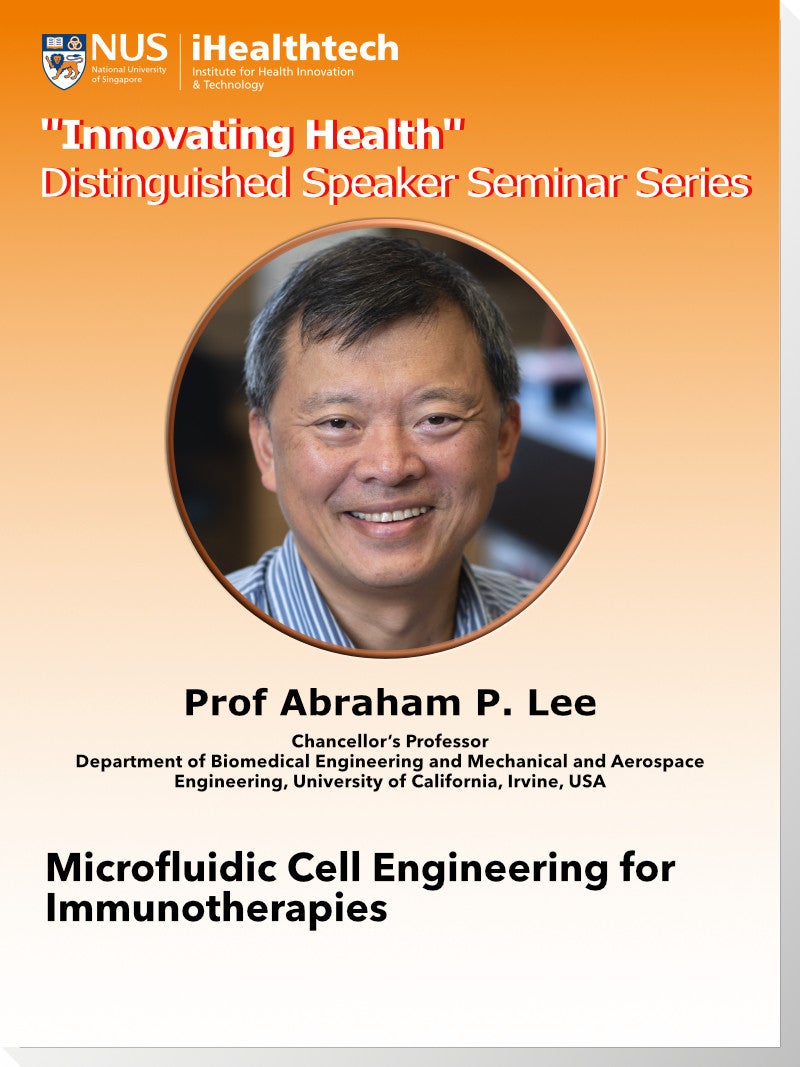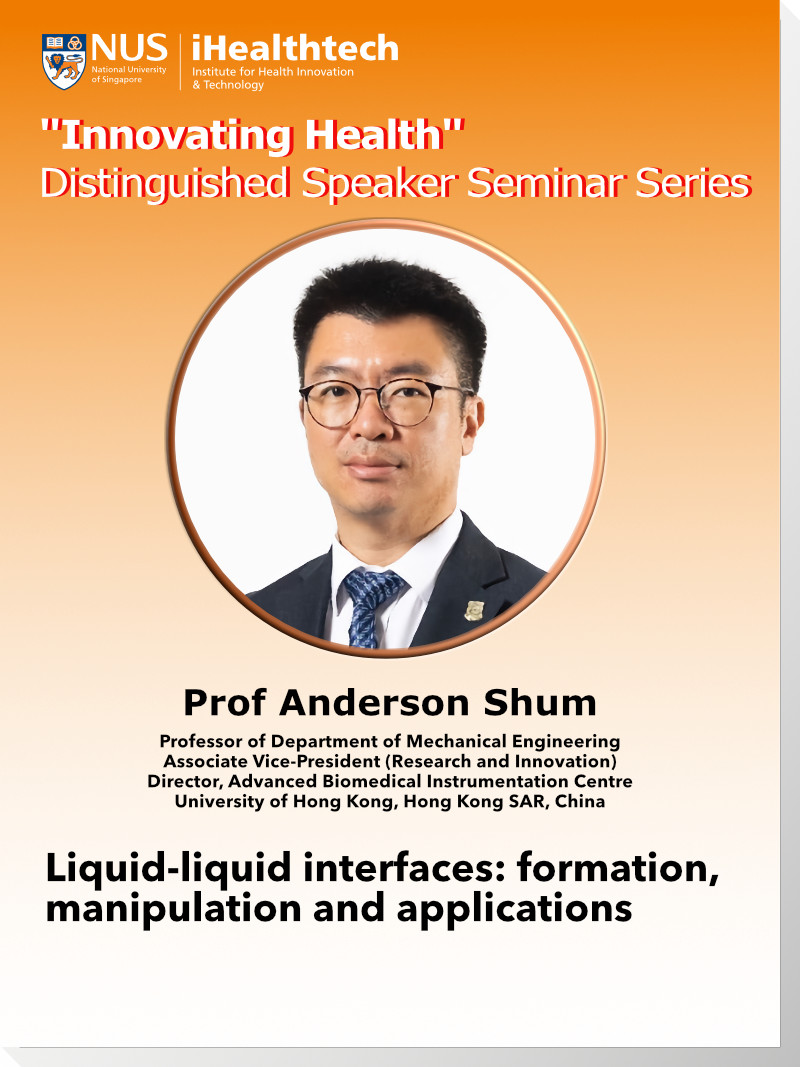“Innovating Health” Distinguished Speaker Webinar Series – Professor Viola Vogel

Reciprocal mechanical signalling between cells and their environment is the key to the spatiotemporal coordination of tissue growth and regenerative processes. If miss-balanced, the result can tip the niche towards pathological transformations. Yet, these processes are difficult to quantify in real organs. Translating the study of single-cell mechanobiology to the tissue level is hampered by at least two challenges, i.e., the lack of nanoscale sensors to probe forces or tissue fibre tension in organs and the appropriate de novo grown 3D micro-tissues to mimic essential aspects of healthy versus diseased tissue niches. To address these shortcomings, we developed a peptide based-stretch sensor to probe the tensional states of ECM fibres in animal models and human tissues. The method has demonstrated that significant forces can switch the structure-function relationships of proteins by stretching them. We complement these tissue-level analyses of the reciprocal-crosstalk between cells and their ECM by establishing 3D cell culture systems. The study aims to gain causal insights on how the ECM fibre tension, or the lack thereof through local proteolytic cleavage, affects the reciprocal crosstalk with the resident cells. Underpinning mechanoregulation mechanisms will also be discussed in this talk.
Biography
Viola Vogel graduated with a PhD in Physics from the University of Frankfurt (1987) with research conducted at the Max-Planck Institute for Biophysical Chemistry in Göttingen, for which she received the Otto-Hahn Medal. After her postdoctoral studies in Physics at UC Berkeley, she started her academic career at the University of Washington Seattle in Bioengineering (1990-2004), where she was the founding Director of the Center for Nanotechnology (1997-2003). When moving to ETH Zurich in 2004, she initially joined the Department of Materials and received an ERC Advanced Grant (2009). She then co-founded the Department of Health Sciences and Technology (2012) and chaired the Department from
2018-2020. She is currently an Einstein Fellow at the Charité Berlin and an Elected Member of the Leopoldina, the Berlin-Brandenburg Academy of Sciences, the National Academy of Engineering (NAE) and the National Academy of Sciences (NAS), USA, and serves on many international Advisory Boards. She received an Honorary Doctor of Philosophy from
Tampere University, Finland 2012.
Her research in Bioengineering focuses on how to exploit emerging knowledge in Mechanobiology for Applications in Tissue Engineering, Regenerative Medicine, or to treat inflammatory diseases. Mechanical forces drive essential life processes, from the first steps in fertilisation all the way to shaping growing assemblies of cells into organisms. External and
cell-generated forces also orchestrate tissue homeostasis in healthy organs, or if misbalanced, result in a range of degenerative diseases. With state-of-the-art experimental and computational tools, she deciphered various mechanisms of how cells sense mechanical forces and convert them into biochemical signals, ultimately altering molecular transcription
processes. Even though most of our knowledge in Biology, Medicine and Pharmacy is rooted in the structure-function relationships of proteins under equilibrium, many proteins get stretched by mechanical forces in vivo. She thereby pioneered novel concepts in Mechanobiology on how forces can switch the structure-function relationships of proteins and how this can be exploited for clinical applications.
Register the webinar here: https://nus-sg.zoom.us/webinar/register/WN_4qhhKm3IRIu9PV0wTprjsA
Download the poster here [pdf]






